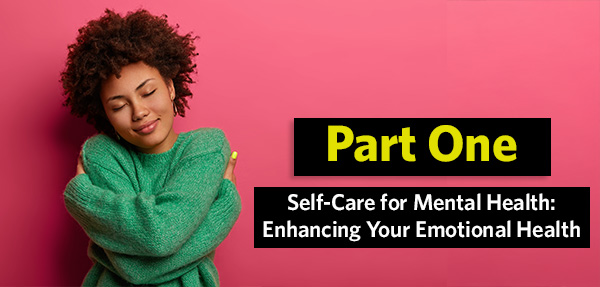Published: 18th May 2025.
Last updated: 18th May 2025.
Author: Cara Sherratt.
Contents

We understand that some days just getting out of bed can feel difficult, so how do we begin to achieve small acts of self-kindness or self-care?
Self-care can feel like an impossible task, especially at times when our resilience is low. However, self-care is arguably the most important thing that remains in your control whether you’re feeling your best or not. Moving beyond blanket advice to run a bath or take a walk, we’ve collated a range of self-care tips that are designed for the various energy levels that come with unpredictable days.
One of the main things to consider is that self-care doesn’t have to take up a huge amount of time, energy or resources. Especially when you might feel like you’re running on empty. Often, the smallest things can make the biggest impact and although there is no guarantee for immediate relief, spending an amount of the time or energy you have available on a small token of self-care can help contribute to a better mood or easier transition back into routine in the long term.
Self-care can range from physically looking after yourself to being kinder to yourself internally, and everything in between. When the days feel difficult, give yourself a break and celebrate the things you can do – rather than focusing on all the things you feel like you can’t do.
In this blog, we’ll cover the impact of mindsets and share tips for staying on top of personal hygiene. If you’re unsure on where to start, you can find more wellbeing information in our free online modules.
Celebrate Small Wins
When a lot of things can feel like a mammoth task, noticing the small wins during your day is a vital piece of the self-care puzzle. Whether that is something like making yourself a tasty breakfast or choosing an item of clothing that usually makes you feel good. Some days, when getting out of bed can feel like a huge task, those days you manage to get up is a win, nonetheless. Noticing small successes during the day and acknowledging them as a win that you achieved today can start to slowly and subtly encourage your mind to see the world more positively, which could help your mood long-term.
It is totally in your power to change the narrative on the way you view small successes, whether that’s giving a nod to the you, who four weeks ago, completed a puzzle or completed a DIY task – or to the you, today, who re-adjusted your hair to feel more comfortable on your head. As you move forward, start to set reasonable goals and aim to achieve them, no matter how simple – just remember to celebrate your success, at any level.
Re-define Personal Narratives
In a similar vein to celebrating small wins, your first hurdle may well be with perspective. Perspective drives narratives and is defined as “a particular attitude towards or way of regarding something” – otherwise known as a ‘point of view’” - which, as humans, is something we each have a unique relationship with. The way we view things can often be influenced by the narrative set out by where we are with our mental health, but it can equally be turned on its head in the name of self-care.
From a negative thought perspective, changing your socks might not seem like a big deal. However, sprinkle in a bit of context paired with compassion and we suddenly start to see the impact of small wins for those who may be having a harder day than others. Changing your perspective on the way you view things during periods of stress or difficulty can start to remind your brain of the more positive things you can achieve.
For example, one perspective could argue that lying in bed all day is lazy. However, you can challenge that perspective to argue that lying in bed is resting, and when people rest when they need to, they are simply caring for themselves and listening to what their body needs in that moment. Practice flipping perspectives and marry this with celebrating small wins to tick your low-energy act of self-care off your to-do list for the day.
Personal Hygiene
Look better, feel better - right? We know it’s not that simple but there is still a lot of power in maintaining personal hygiene during periods of low mood. Paying less attention to hygiene can cause discomfort, skin complaints and infections, and can lower self-esteem – which can make you feel worse. Much like our environments, a cluttered space can lead to a further cluttered mind – not to mention how these small tasks can add up to feel like an overwhelming list of things to do.
There are many aspects to personal hygiene that, when looked at in bite-size tasks, can start to become more manageable and have lasting positive effects. Personal hygiene as a subheading covers things like brushing teeth, washing hair or putting on deodorant. However, check in with yourself and set a reasonable and achievable goal to manage self-care through personal hygiene.
A few ideas that count for personal hygiene acts of self-care can include:
Hair – Adjusting your hairstyle for comfort or for preference, brushing, washing or drying all count towards improving personal hygiene on a daily basis.
Hands and Face – Wash your hands or face with water, in the shower, or by using a wipe for ease. Set a small goal to achieve this once a day, or a few times a week.
Washing Hands After Bathroom Breaks – Keep up with regular hand washing to take care of yourself, maintain feelings of normality and avoid picking up bacteria that could make you feel worse.
Skin – Using makeup, moisturiser, body gel, deodorant or SPF at any intervals to feel less dry, smell nice and feel more cared for.
Clothes – Washing and wearing clean clothes can offer an opportunity to include your favourite scents as well as the option to tidy clothes away and create a cleaner, clearer space. Choosing or changing into clean, comfortable clothing can be an underrated act of self-care.
Nails – Cleaning, filing, oiling or painting your nails can be a small thing to spend time on that you can do with little energy and see results quickly. If not on yourself, perhaps find a volunteer that you can do this activity with.
Basic Teeth & Oral Care – Some days routine oral health can feel like a daunting task, so again start small. Set your goal at brushing once a day at least, use chewing gum to help with unwanted tastes or smells. Is it suggested that tooth brushing well, once per day could be sufficient to maintain oral health and to prevent cavities and periodontal diseases – and is a vast improvement on not brushing at all. However, to achieve sufficient results tooth brushing twice daily is recommended.
Elevated Teeth & Oral Care – Ideally, it is recommended to brush twice a day. Once in the morning and at least one other time during the day. Each time, consider if you have the energy to go one step further in your oral health and floss, use mouthwash or set up an achievement chart to keep on top of frequency, if you find it helpful or motivating. Again, we’re aiming to celebrate the times we complete self-care, not worry about the days we found it all too much.
Feet – Consider anything from a quick wash to moisturising and trimming nails to full-blown pedicures to hopefully have you feeling a little less blue.
From head to toe, we can find opportunities to use self-care to improve low mood or during periods where life can feel overwhelming.
Join us in this three-part blog series to find more realistic mental health self-care strategies, tips and tricks. Explore various ways that individuals can incorporate self-care into their day to day, no matter what the day brings, or how you can support those around you who may be struggling and work together with the aim of improving overall wellbeing in the long-term.
If you’d like to get life-saving Mental Health First Aid training and learn how to properly support those around you who may be affected by mental ill-health, enrol in our new Mental Health First Aid course today.
* The information provided here is intended for general wellbeing support and educational purposes only. It is not a substitute for professional medical advice, diagnosis, or treatment. The content shared should not be interpreted as clinical guidance. If you are experiencing symptoms of mental ill-health or have concerns about your mental wellbeing, we strongly encourage you to speak with a qualified healthcare provider, such as your GP or a registered mental health professional.
Sources
https://summer.harvard.edu/blog/why-celebrating-small-wins-matters/
https://www.nhs.uk/conditions/social-care-and-support-guide/practical-tips-if-you-care-for-someone/how-to-help-someone-you-care-for-keep-clean/
https://www.innerbody.com/impacts-of-personal-hygiene-on-your-health
https://pubmed.ncbi.nlm.nih.gov/16355646/
https://www.nhs.uk/live-well/healthy-teeth-and-gums/how-to-keep-your-teeth-clean










